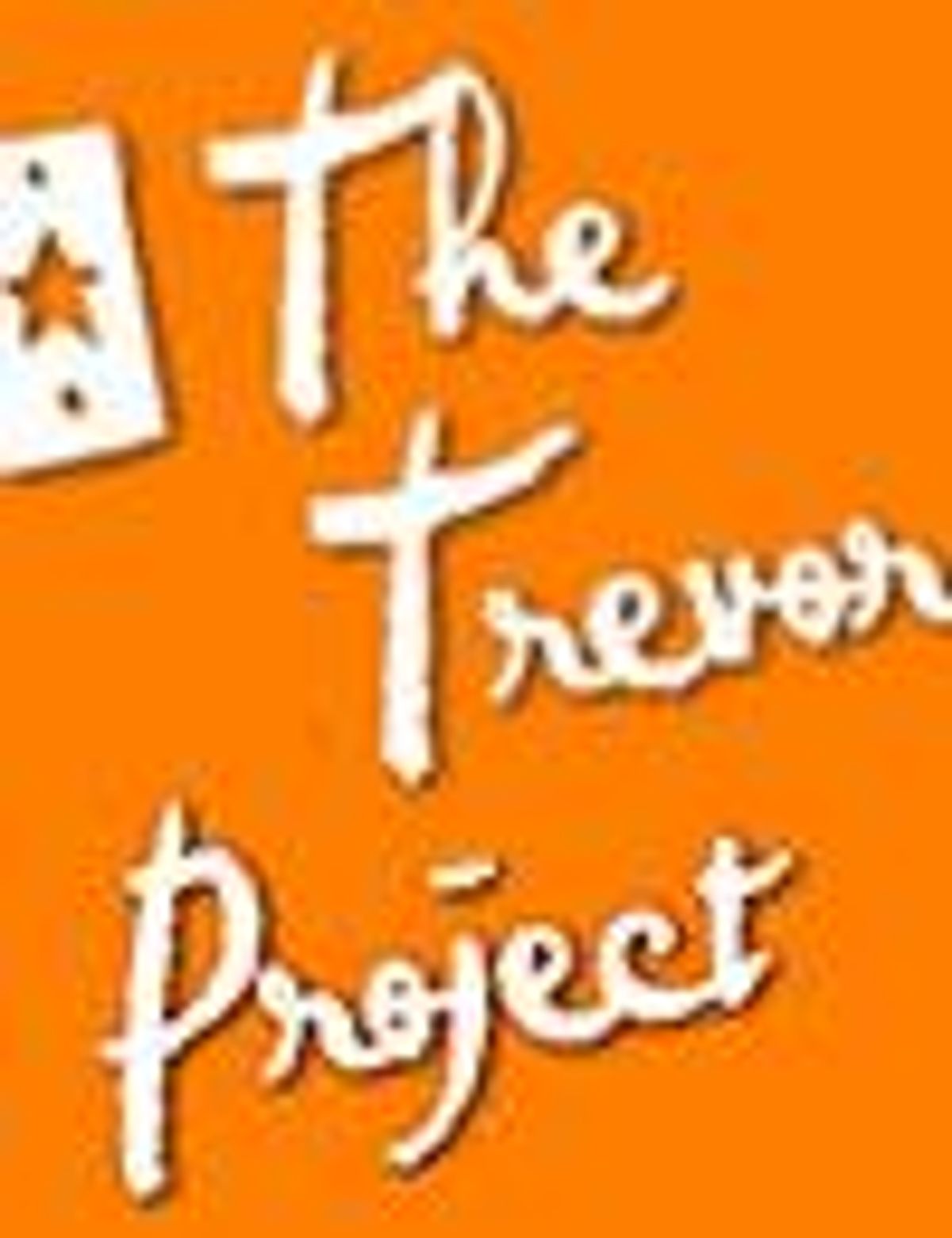The year-end
holidays bring joy to many--and depression and
thoughts of suicide to others. When those at risk are
lesbian, gay, bisexual, transgender, or questioning
youth, the Trevor Project is there to help every day
of the year, including Christmas. The organization runs a
toll-free national suicide hotline--(866)
4-U-TREVOR--as well as suicide-education
programs for LGBT youth. Jorge Valencia, executive
director of the Trevor Project, spoke with Advocate.com by
telephone.
How is the Trevor Project different from other national
suicide-prevention hotlines? The Trevor Project runs the only nationwide
hotline for gay and lesbian teenagers. It is open 365
days of the year. The thing that makes us different
than everyone else is our focus is the highest-risk group,
LGBT youth--that is,
15-to-24-year-olds. Suicide is the number 1
killer of teens today, and every hour and 45 minutes,
a gay teenager is lost to suicide. That's a
Columbine every single day of the year. That definitely
justifies why we're around.
How many young people do you help in a year? We get approximately 1,000 calls a month from
teenagers all around the nation. However, when
awareness of our help line is raised we get four times
as many calls. For example, last year, after we were
mentioned after an episode on the WB's One
Tree Hill, calls increased fourfold.
That's one reason why we're so adamant about
raising awareness, because 95% of all youth suicides
are preventable. That means more lives being saved if
we can talk to them. That's a statistic that we can
speak to.
Is the Trevor Project hotline just for gay teens?Forty percent of our callers are people who don't
define their sexuality--and we don't
advertise our hotline that way either. For instance,
one of our posters advertising the hotline asks the question
"Who?" as in, Who are you? Who can you turn to
for help? The thing we're trying to avoid by
having open-ended posters like this is a situation
where a kid who's still confused about his sexuality
[doesn't want] to stop and look at the poster
because of fear of being harassed.
What other projects besides the national hotline does the
Trevor Project run?We just opened the "Dear Trevor" section
on our Web site [https://www.thetrevorproject.org].
It started because we would have teens asking our webmaster
over the Internet, "I'm confused, I
think I might be gay. Can you help me?" We
created this section on our Web site so they can e-mail us,
and we have our counselors respond to them. We keep
those letters and their answers online so others can
get comfort from the letters. Of course, if someone
needs help immediately, we ask them to call the hotline so
we can help them directly.
Where did the name "Trevor Project" come from?Trevor came out of James Lecesne's [play] Word
of Mouth. The show had a segment about a
13-year-old boy who develops feelings for a friend of
his, and he's ostracized. This segment was made into
a short film and in 1994 it won the Oscar [for best
live-action short]. It wasn't until '98
that HBO decided it wanted to air the film, and when HBO
approached the film's creators, [the creators]
thought that they should set up a hotline for any
teens who saw the short and were going through the
same thing. Since then over 35,000 youth have been helped by
the hotline.
Why have you stayed with this project for four and half years?I personally have lost two friends to suicide. One of
them I know was gay. So there's a personal
connection there right off the bat. But it is in
understanding the statistics, and the potential of a 95%
chance of saving someone's life through
interfacing with a suicidal teen--that's
what keeps me here. I go home at the end of the day and know
we've done our job if just one life is saved.
Where is the Trevor Project headed? What are some of the
ways it can expand?We're hoping to launch a program which we will
call "Trevor Lifeguards." Many teenagers
are still not comfortable talking to their families or
their teachers about their suicidal thoughts. At the end of
the day, teenagers can feel especially alone when [their
situation is] augmented with the fact that
they're gay or questioning. What we're
hoping to do is start mobilizing our youth to be lifeguards
with one another. What we want to do is go to schools
and train students to see the suicidal signs among
their peers, and also how to help them to identify a
counselor or teacher whom they can work with, so if they do
see someone, they can be helped. It is our goal in 2006 to
mobilize young people to start becoming lifeguards of
one another's lives--that's where
the name comes from.
What are you most hoping will happen in 2006 to improve
the lives of LGBT youth?I sure hope the political climate changes. I worked in
the Clinton administration, and every administration
has its bumps--the "don't ask,
don't tell" policy under the Clinton
administration, for instance. Even so, I don't
see the political climate getting any better. In fact, I
think it's going in the opposite direction. When you
have teens who don't feel safe about what
they're going through, an unaccepting political
environment only makes them more anxious and creates more of
a depressive state. I can't help but hope that
the political climate changes so it's acceptive
of all types of people.
In addition to Trevor, where else can LGBT youths look
for help and support? There are a number of organizations that do
great work. If someone is looking for peers and for
straight allies in their schools, nobody does it
better than GLSEN [Gay, Lesbian, and Straight Education
Network; https://www.glsen.org]. They [have
helped create gay-straight alliances] in thousands of high
schools across the nation. That offers support in the
schools. There are also mentoring programs.
There's one in Los Angeles, for instance, called
Life Works. They do a wonderful job [training] out LGBT
persons to mentor. For homeless youth [in Los
Angeles], there's GLASS [Gay and Lesbian
Adolescent Social Services, which provides housing and other
programs for homeless or runaway adolescents]. All of us
[LGBT youth help organizations] work together.
Trevor's goal, though, is first and foremost to
keep youth alive, and while many of them are not comfortable
talking to anyone they know, 30% of our callers are repeat
callers, which means we keep them alive day-to-day.
What strategies can you offer to isolated or depressed
LGBT youth for getting through the holidays? There are always signs of depression during the
holidays, but I think there are many ways that anyone
can help. The most important is talking about suicide
if you see the signs. Oftentimes people are scared to talk
to someone directly about suicide because they're
afraid of introducing ideas into their head, but
that's completely the opposite [of what's
true]. The more you talk about it, the more likely they are
not to attempt suicide. Don't be afraid to talk
about suicide. And of course, our hotline is open
every single day of the year in case anyone needs to
talk to us confidentially.
How can Advocate readers help? Donations on our Web site are always
appreciated. Over 90% of our revenue is individual
giving, and that speaks volumes about the work we're
doing and the importance of keeping our teens alive.
We also have numerous volunteer opportunities. We have
over 400 volunteers that help us year-round, and
we're always looking for more volunteers on our Web
site.
Any final words?In our minds there is no greater gift than the gift of
life, and, to us, directing someone who is considering
suicide to our help line is the best gift anyone can
give anyone. At the end of the day, one cannot measure
the potential of a single life. And I hope readers
understand that.



















































































